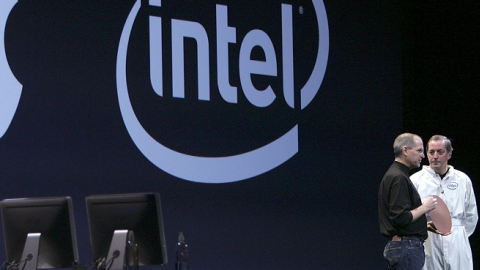For those of us who believe in the market system, there is something unsettling about the thought of the billionaire bosses of Google, Apple, Adobe, Intel, two Disney subsidiaries, and Intuit sitting around a table and agreeing not to compete for staff. Facebook declined an invitation to join the conspiracy. These are the self-styled "disrupters", believers in the virtues of a market system that allows them to compete for customers even if, especially if, that competition destroys existing enterprises. Not having read Schumpeter to his conclusions, they are advocates of the gale of creative destruction that propels living standards ever forward.
Unless, of a course, a faint breeze of competition wafts through the Silicon Valley labor market. Then competition for staff becomes "poaching", a process that might start a "wage war", putting a dent in their petty cash piles. So they agreed not to compete for staff, but denied that they did so to depress wages so that their earnings might be increased by an amount probably equal to no more than rounding errors in their earnings statements. "If you hire a single one of these people [Apple engineers], that means war," Steve Jobs emailed his Valley peers. To avoid creating "a paper trail over which we can be sued later," Eric Schmidt, then Google's CEO, and Paul Otellini, Intel's CEO at the time, confined themselves to emails--reflecting a charming faith in the confidentiality of emails of the sort that have made several Wall Street traders involuntary guests of the government--and to what Otellini called "a handshake 'no recruit'" agreement. At one point, Schmidt agreed to fire a recruiter who had solicited an Apple employee.
All settled now. In order to avoid what seems an inevitable guilty verdict in an antitrust trial, and the trebling of any damages that might take the total hit to as much as $9 billion by one estimate, Apple, Google, Intel and Adobe agreed to settle (as had Disney and Intuit several months ago, for $20 million). To go to trial would have been risk-taking of an even higher order than these serial risk-takers dared take. Judge Lucy Koh, in refusing to dismiss the case, had written:
__Defendants have conceded that there were a series of six-bilateral agreements" [to hold down their payrolls by not recruiting rivals' employees]...All six of these agreements contained nearly identical terms, precluding each pair from affirmatively soliciting any of each other's employees.__
Damning e-mails were to be admitted at trial.
Although the terms of the settlement are not to be disclosed--why not?--Bloomberg reports the figure at $324 million, a pittance. One of the conspirators, Apple, clocked up $10 billion in profits in the first quarter alone, which comes to more than 100 times a one-quarter share of the settlement cost. The $324 million will be divided among the lawyers ($8.7 million for fees and expenses) for the sinned-against members of the Valley proletariat, and some 64,613 engineers, each of whom will get a few thousand dollars.
So this conspiracy to depress wages--the companies steadfastly deny that was their goal--will prove a profitable venture. It is hard to imagine that paying each engineer a few thousand dollars in damages for the privilege of depressing his or her wages for a long period is not a financially sound purchase. Unless you throw in the cost of reputational damage, which seems to be nil given the lack of any effect of the settlement on the share prices of the conspiring companies.
One wonders why the Justice Department has not moved to bring its own action, if for no other reason than to make this effort to cartelize the labor market a losing proposition financially. It was, after all, a Justice Department investigation in 2010 that brought this conspiracy to light and resulted in a complaint that was settled when the conspirators agreed to end their ban on cold-calling rivals' staff. There were no financial penalties, nor prison sentences levied on traders using inside information.
Imagine this: CEOs of major electrical equipment companies agree to divide markets--not to poach each others' customers. They enshrine this agreement in an arsenal of smoking guns. Someone tips off the Justice Department, which, after an investigation decides against going to trial to obtain fines and prison sentences, instead settles for a promise to behave better in the future. That promise is almost immediately broken. The Justice Department is oddly motionless. Why?


















